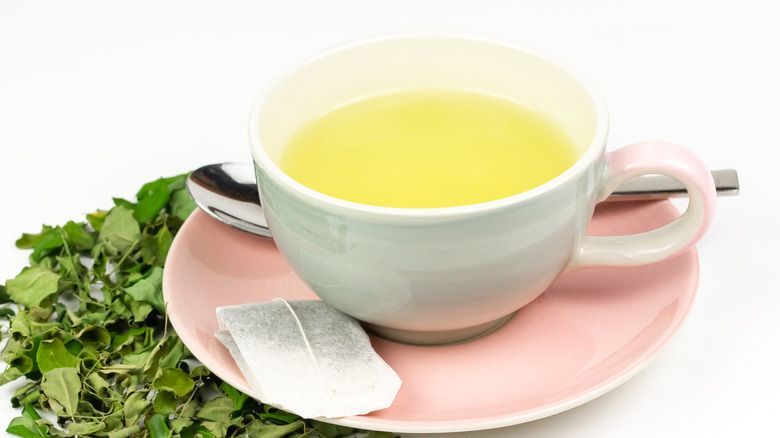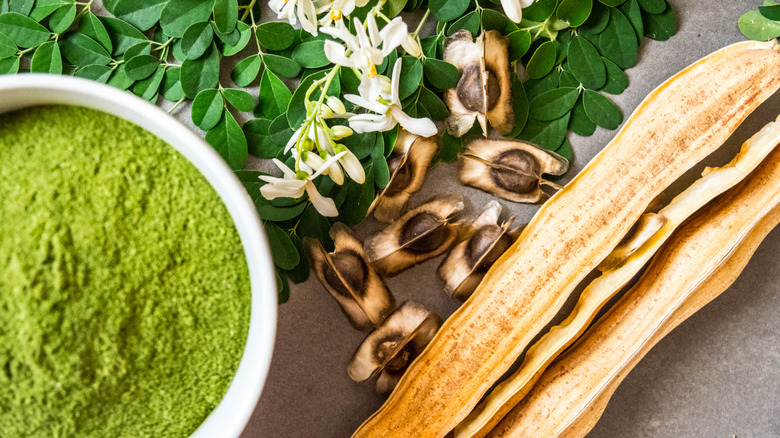The Health Benefits Of Moringa Explained
Many of us have heard of the sing-songy advice, an apple a day keeps the doctor away. Fruits and vegetables we often find on our plates need little reminder of their health benefits or at least not as much as the more obscure foods our bodies can benefit from. Take, for instance, moringa.
According to Medical News Today, moringa is a plant that is native to India. The plant's leaves, flowers, seeds, and roots have been used for medicinal purposes for hundreds of years. For centuries, moringa has been used as a remedy to help treat conditions such as diabetes, chronic inflammation, cancer, joint pain, and a variety of infections. So powerful is this tree that it is often referred to by its nickname, the miracle tree.
According to WebMD, the leaves of this magical species of tree have seven times more vitamin C than an orange, as well as an impressive 15 times more potassium than bananas.
There are many ways you can add moringa into your diet
If you're looking to add moringa to your diet, there are many ways you can do this. According to the Food and Agriculture Organization of the United Nations, all parts of the moringa tree are edible. The leaves can be used fresh as a cooking ingredient or dried out and pulverized into a fine powder. The seeds can be steeped in hot water for tea or added into a curry. And the incredibly healthy oil that is extracted from the seed can be taken in supplement form or used for cooking.
We're all about eating whatever we need to every day if it keeps the doctor away. The age-old advice may state that it is an apple. Though now that we are aware of the multiple versatile uses of the powerful miracle tree, we may consider adding a dash of moringa oil or a pulverized moringa leaf into our daily diet for good measure.


